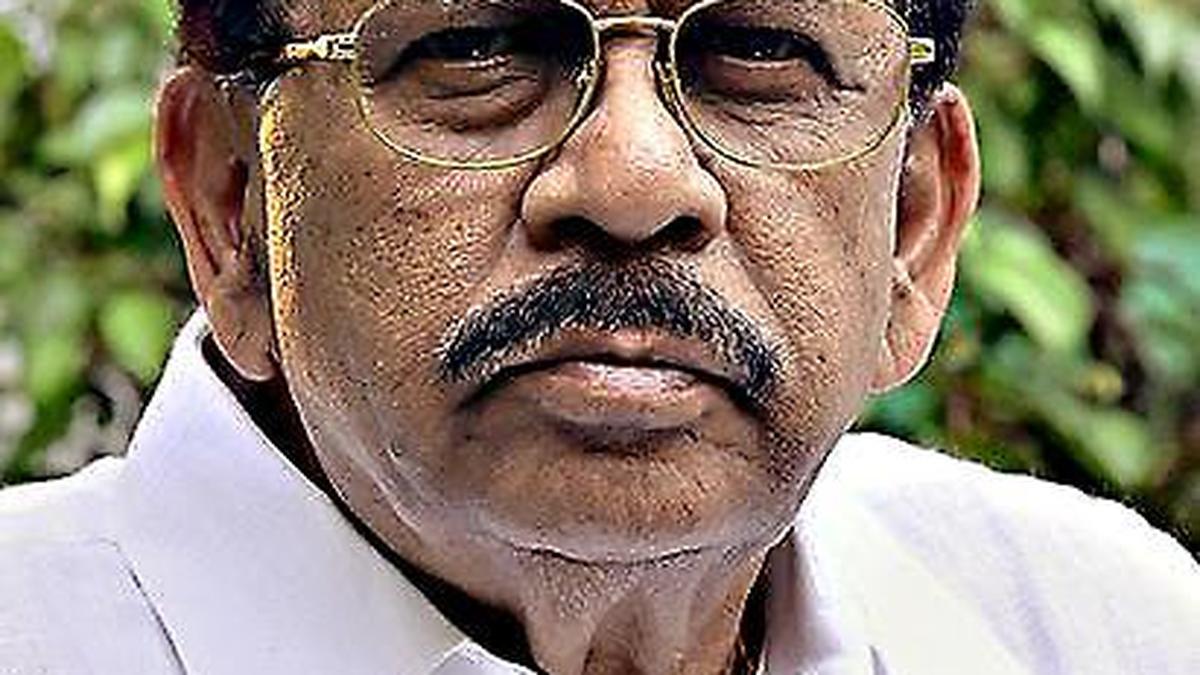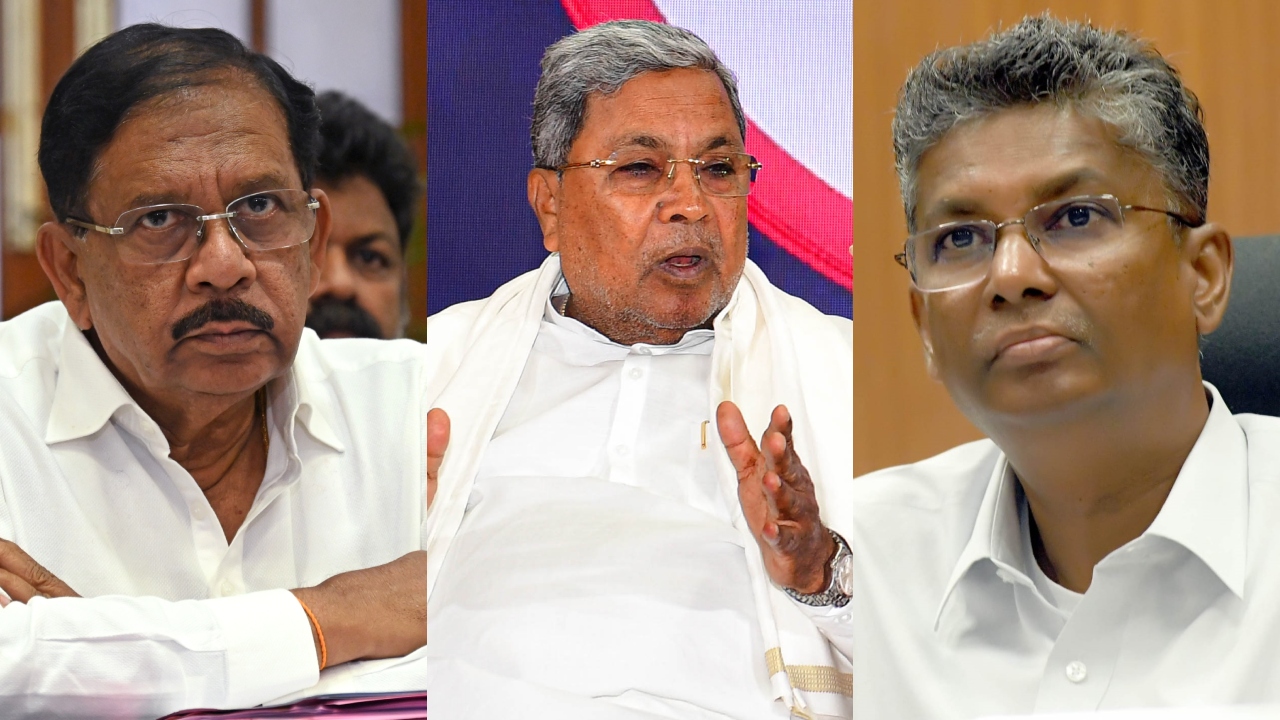In a pointed yet cohesive display of political unity, senior Congress leaders Satish Jarkiholi and G. Parameshwara have together reiterated that the party’s recent electoral success in Karnataka was the result of collective effort. Their joint message, delivered at separate but coordinated public events, is being interpreted as a deliberate signal to both internal stakeholders and rivals. Against the backdrop of rising factional pressures and a swirling atmosphere of leadership intrigue, their remarks reinforce the idea that the party’s strength comes from collaboration — not individual ambition.
This emphasis on team effort is significant for several reasons. First, it seeks to counteract narratives of a growing divide within the Congress, where different camps appear to be jockeying for influence. By publicly stating that no single leader is solely responsible for the win, Jarkiholi and Parameshwara are staking a claim for a balanced power equation. Second, their message is designed as a warning to potential challengers: any attempt to destabilise the government based on the false premise of monopolised influence will be firmly resisted. Finally, it’s a strategy to reassure the rank-and-file that the party remains united, committed to its collective goals, and focused on governance rather than internal power games.
Projecting Collective Strength Amid Leadership Waves
Satish Jarkiholi — a seasoned veteran in Karnataka politics and deeply embedded in the party’s grassroots structure — addressed a rally where he credited every cadre, legislator, and worker for the Congress’s victory. He insisted that the party’s success was not just about prominent faces, but about “every volunteer, every supporter, every hand that worked behind the scenes.” In doing so, he consciously avoided singling out any individual as the architect of victory. This was more than modesty; it was a deliberate framing of political success as shared, and power as distributed.
At almost the same time, G. Parameshwara — another influential leader with clout in both the party’s organisational machinery and among its grassroots — echoed similar sentiments. Speaking to party workers and the public, he stressed that the Congress machinery in Karnataka had operated like a well-coordinated team, with legislators, district leaders, and volunteers working in tandem. According to him, this collective dynamic had created a strong foundation for the government to both win and deliver. He also underlined that governance would be driven by consultation, collaboration, and continuous teamwork — rather than power monopolies.

Political analysts see this double act as strategically timed. With whispers of leadership change in the air, especially in the context of debates about power sharing and internal balance, these leaders are likely signalling to the broader party that unity matters more than ambition. By elevating the narrative of team effort, Jarkiholi and Parameshwara are staking out moral high ground: any internal power play that threatens the cohesion of the party will be questioned. Their remarks are not just praise for the past, but a politically potent message for the future — that collective strength should define how Congress evolves in Karnataka.
Moreover, this narrative may serve as a bridge across various factions within the party. Karnataka Congress has long been characterised by multiple power centers, each led by its own set of loyalists. In recent times, the growing voices within the Deputy Chief Minister’s camp and other groupings have spurred speculation of a power tussle. By stressing “team effort,” Jarkiholi and Parameshwara are appealing to everyone: not just to their supporters, but to rivals too — inviting them into a united front rather than isolating them.
A Strategic Appeal to Stability and Governance
The underlying message of their joint remarks is unmistakable: stability is not up for negotiation. Jarkiholi and Parameshwara seem to be cautioning that internal conflict could erode what the Congress has built together. Their invocation of collective effort is a reminder that the party’s mandate is larger than individual leadership dreams, and disrupting that unity would be a betrayal of the trust voters placed in the Congress.
This appeal comes at a sensitive moment in Karnataka’s governance cycle. As the government approaches its mid-term phase, questions about leadership, power-sharing, and cabinet reshuffling are beginning to gain traction. By foregrounding a narrative of collective ownership, these senior leaders are countering factionalism with a stronger political ethic. They appear to be making a case for a political culture where achievements are seen as shared, and where legitimacy does not rest on a single face, but on multiple contributors.
Moreover, the team-effort message strengthens the Congress’s electoral narrative. It allows the party to present itself not just as a coalition of convenience, but as a well-oiled organisation with deep roots in every corner of the state. For voters who are weary of personalised politics, this framing is likely reassuring: it suggests that governance will not be hijacked by ego, but will be driven by collective accountability and mutual responsibility.
At the same time, this strategy sends a warning to the opposition — particularly the BJP. By emphasising unity and shared credit, Jarkiholi and Parameshwara are making it more difficult for rivals to exploit internal divides. Their message suggests that any attempt to destabilise the party must first confront a united front, not a fragmented group. The clarity of that message may act as a deterrent, making potential defectors or dissenters think twice about external manipulation.

Broader Implications: What This Means for Congress and Karnataka
The joint message from Jarkiholi and Parameshwara has far-reaching implications. For Congress in Karnataka, it could strengthen internal cohesion by encouraging legislators and grassroots leaders to think and act collectively. This might reduce the intensity of factional rivalries and shift the political culture toward more inclusive decision-making. If successful, this could well become a defining moment in how the party manages leadership transitions going forward — promoting collaboration instead of competition.
On the governance front, the emphasis on team effort could translate into a more participatory administration. If the leaders are sincere about their message, there may be increased engagement of legislators, workers, and district functionaries in policy planning and implementation. Such involvement could foster better accountability, as decisions are less likely to be confined to a small circle of power brokers. In the long term, this could improve governance outcomes and deepen the party’s connect with its base.
Nationally, this narrative sends a signal to Congress’s high command: Karnataka’s political future should be built around collective strength rather than personal ambition. Jarkiholi and Parameshwara are effectively arguing for a democratic distribution of power, where leadership is rewarded not just on the basis of electoral popularity, but on organisational contribution. In doing so, they position themselves as proponents of a “new Congress culture” — one that respects internal teamwork and shared responsibility.
At the same time, their message may influence how other regional Congress units think about power dynamics. If Karnataka can successfully navigate internal tension through a team-based approach, it could become a model for how Congress handles leadership challenges elsewhere. This may inspire other state units to move away from factional divides and toward more inclusive and grounded political strategies.
Challenges and Risks in the Path Ahead
However, the path ahead is not without hurdles. First, the very fact that these messages are being emphasised publicly is an acknowledgement that internal tensions exist — and that the leadership feels the need to confront them. If not followed by substantive action, their words could be dismissed as performative, used merely to maintain the facade of unity rather than to build it.
Secondly, translating grand statements into practical coordination is difficult. Teamwork in electoral victory is one thing; working together in governance is quite another. Leaders and MLAs may agree in public, but when it comes to policy, ministerial portfolios, or political advantage, old rivalries could resurface. Without institutional mechanisms — such as a transparent leadership transition plan or regular consultative forums — the unity message may remain a strategy, not a reality.

Thirdly, there is a risk that emphasizing “team effort” could dilute individual accountability. While collaboration is healthy, it must not turn into a cover for inaction or lack of responsibility. If leadership is spread too thin, or if power is too diffused, the government may struggle to make bold decisions, take swift action, or enforce discipline. For the team narrative to work, it needs a framework that supports both shared credit and clear responsibility.
Finally, the opposition may not be deterred merely by words. The BJP, for instance, may continue to test the Congress’s unity through strategic provocations, defections, or legislative manoeuvres. Even with Jarkiholi and Parameshwara pushing the narrative of cohesion, the real threat to stability could come from external actions. The Congress will need to back its moral appeals with political preparedness, organisational resilience, and legal safeguards.
Conclusion: Unity as Message, and Message as Power
By jointly emphasising that Congress’s rise to power was the result of teamwork, Satish Jarkiholi and G. Parameshwara are doing more than offering a political platitude. They are intentionally crafting a message about how power should be shared, how credit should be distributed, and how leadership should grow — through cooperation, not confrontation. Their words resonate deeply with both the party rank-and-file and the public, positioning the Congress’s success as grounded in collective effort rather than individual dominance.
Their appeal for unity is not just symbolic. It carries a strategic undertone: if the party truly believes in its shared mandate, then attempts to divide or dislodge it will be met with a united front. For Congress workers and legislators, this could bolster trust in the leadership and reduce the temptation for factionalism. For the opposition, it crystallizes the challenge: destabilising a government built on teamwork may not be easy.
In the broader political context of Karnataka, this moment could define how Congress navigates power transitions going forward. If followed up with real engagement, consultative decision-making, and inclusive governance, the “team effort” narrative may lay the foundation for a more mature political culture. On the other hand, if the message remains rhetorical, the risk of fragmentation will persist, and the credibility of such declarations will weaken.
Ultimately, the stand taken by Jarkiholi and Parameshwara is a reminder that in politics — especially in a democracy — strength lies not in the ambitions of a few, but in the unity of many. Their words are both a rallying cry and a caution: for Congress to succeed, it must see itself not as a collection of individuals, but as a team with a shared purpose. Whether this message translates into lasting unity or fades into mere symbolism will determine the course of Karnataka’s political future.
Follow: Karnataka Government
Also read: Home | Channel 6 Network – Latest News, Breaking Updates: Politics, Business, Tech & More

